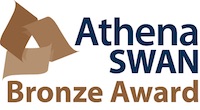Biologists awarded £1.25m NERC grant to map ocean life

Biologists awarded £1.25m NERC grant to map ocean life
Monday 26 October 2015
THE USE of genomics to measure biodiversity in the world’s oceans is exciting scientists across the world.
A new £1.25 million project - SeaDNA - will support scientists at Salford University to progress this work into the future.
SeaDNA is funded by the Natural Environment Research Council (NERC) and is a partnership with the University of Bristol, Imperial College, The British Antarctic Survey and the Marine Biological Association.
Drawing on new developments in DNA sequencing, bioinformatics, remote underwater sampling and ecological modelling, SeaDNA employs community metabarcoding from environmental DNA collected in a range of marine environments, to explore and the potential of trace DNA to characterise ecosystem structure in the ocean.
‘Population maps’
If successful, the use of environmental DNA (eDNA) could result in marine biologists being able to create ‘population maps’ beneath the waves.
Current methods of tracking sea organisms, such as using divers and underwater cameras require huge logistics and cost.
“With eDNA, it may be possible to simply collect water samples and analyse them in the laboratory to determine what species had been in the area,” explained Stefano Mariani, Professor of Conservation Genetics in the School of Environment & Life Sciences.
Professor Mariani is currently involved in another marine eDNA project funded by the Pew Charitable Trusts – Ocean Science Division, looking specifically at sharks. (See the documentary “Traces” for an introduction: https://youtu.be/ucj8Ftgvwdg).
As a result of the NERC funding, a postdoctoral position is now available to work full time on the SeaDNA project. Apply here: http://www.jobs.ac.uk/job/AMG519/research-assistant-in-marine-genomics/
National strategy
SeaDNA is one of eight projects funded by NERC under its’ new Highlight Topics scheme, which aligns with NERC’s strategic vision of putting environmental science at the heart of sustainable management of the planet.
Professor Iain Gillespie, NERC’s director of science and innovation, said: “It’s fantastic to see science emerging to address these highlight topics, which will be central to delivering the priorities in the NERC strategy. This is a great first cohort of projects from our new funding route.”
@SeaDNAproject









